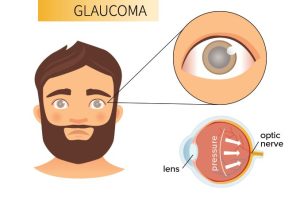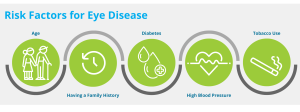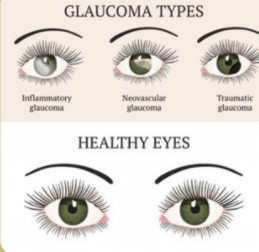Every Nigerian is at risk of contracting glaucoma, a Professor of Ophthalmology at the College of Medicine, University of Lagos (CMUL) and Honorary Consultant Ophthalmologist at the Lagos University Teaching Hospital (LUTH), Prof. Adeola Olukorede Onakoya, has disclosed.
Prof. Onakoya revealed this while delivering the 6th inaugural lecture at the University of Lagos, in the 2023/2024 academic session.
She mentioned that glaucoma is the second leading cause of blindness in Nigeria and the world, with a prevalence of 16.7percent, second to cataract. According to her, it is a public health problem which is the most common cause of irreversible blindness worldwide.
 The topic of the lecture: Protecting and Preserving the ‘Cables’: The Race Aainst Darkness, she said, was borne out of passion for her subspeciality, glaucoma – a disease that ravages the optic nerve, a cable like structure which connects the eye to the brain.
The topic of the lecture: Protecting and Preserving the ‘Cables’: The Race Aainst Darkness, she said, was borne out of passion for her subspeciality, glaucoma – a disease that ravages the optic nerve, a cable like structure which connects the eye to the brain.
American Academy of Ophthalmology defines glaucoma as a disease that damages your eye’s optic nerve. It usually happens when fluid builds up and increases pressure inside the eye.
The Professor further described glaucoma as asymptomatic and progressive, with sufferers unaware of the disease until it is at an advanced stage when there is irreversible visual loss.
While she pointed out the modifiable and non-modifiable risk factors for the development of glaucoma, she lamented that only five percent of Nigerian population are aware of the disease.
 Early detection, according to her, is possible through regular eye examination at least once every two years, or once a year for those with a family history of glaucoma.
Early detection, according to her, is possible through regular eye examination at least once every two years, or once a year for those with a family history of glaucoma.
She added that early detection through individual, community and collaborative efforts with intervention will reduce those who needlessly go blind from glaucoma.
The American Academy of Ophthalmology also confirmed that glaucoma is a leading cause of blindness for people over 60 years old.; but noted that blindness from the condition can often be prevented with early treatment.
During the Inaugural lecture, the challenges of glaucoma care were highlighted by the speaker. Addressing these challenges, recommendations were made, such as enhancing public awareness, improving healthcare access, and in creasing the number of trained healthcare personnel in Nigeria.
Prof. Onakoya also suggested additional insightful measures, including regular health education and promotional activities on glaucoma to promote screening.
Other recommendations include: innovative screening strategies for at-risk groups, integrating glaucoma screening into annual health check-ups, establishing vision hubs for community glaucoma screening, adding glaucoma to the non-communicable diseases list, and positioning the Faculty of Pharmacy, University of Lagos, as a key player in developing active ingredients for anti-glaucoma medications, among other ideas.


